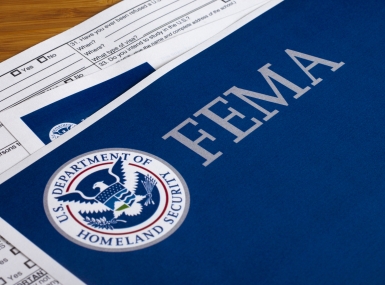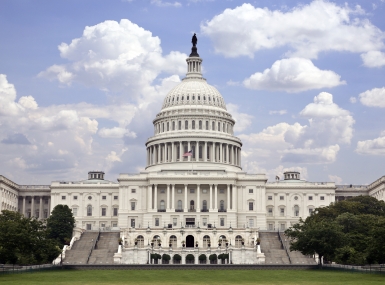U.S. House reintroduces legislation to address the Medicaid Inmate Exclusion Policy with NACo support
Author

Blaire Bryant

Brett Mattson

Naomi Freel
Upcoming Events
Related News

Key Takeaways
Update 06/05/25
On June 5, NACo was joined by state and local government partners in sending a letter to the leaders on the House Energy and Commerce Committee, urging support for bipartisan legislation to reform the Medicaid Inmate Exclusion Policy (MIEP). The letter highlights how amending the MIEP would strengthen continuity of care, improve health outcomes and reduce recidivism among justice-involved individuals. NACo remains committed to advancing legislation that restores federal health benefits for eligible adults and juveniles during pretrial detention and prior to reentry.
Two bipartisan bills aimed at addressing the Medicaid Inmate Exclusion Policy (MIEP) were recently reintroduced in the U.S. House of Representatives. On April 1, lawmakers reintroduced the Reentry Act (H.R.2586), following the reintroduction of the Due Process Continuity of Care Act (H.R. 1510) earlier this year. Both bills seek to improve health care access for justice-involved individuals.
What does this legislation do?
These pieces of legislation each amend the MIEP, a federal statute that revokes access to federal health benefits upon arrest, by ensuring continuity of care through improved access to critical health services for individuals as they enter and exit the justice system. More specifically:
- The Due Process Continuity of Care Act (H.R. 1510) would allow pretrial detainees to receive Medicaid benefits at the option of the state and provide $50 million in planning grant dollars to states and localities for implementing the MIEP repeal, improving the quality of care provided in jails and enhancing the number of available providers to treat this population.
- The Reentry Act (H.R.2586) would allow Medicaid payment for medical services furnished to an eligible incarcerated individual during the 30-day period preceding the individual’s release.
Impact on counties
Counties operate 2,875 of our nation’s 3,160 local jails, admitting approximately 7.6 million individuals across the United States each year. Under the current policy, we must shoulder the full cost of care for incarcerated individuals who would otherwise be eligible for federal benefits, disproportionately burdening county governments and leaving a significant gap in care for individuals with complex health needs.
These bipartisan bills would greatly improve care coordination in local jails and would reduce the healthcare costs pushed onto counties. They would also make it easier for counties to provide effective behavioral health treatments and services necessary for smooth transitions to community care, lower recidivism rates and a reduced risk of overdose post-release. NACo continues to support this reintroduced legislation, and we stand ready to work with Congress to implement these important reforms.
Resource
Medicaid Inmate Exclusion Policy (MIEP) Advocacy Toolkit

Related News

House Transportation and Infrastructure Committee leaders release bipartisan FEMA reform package with major wins for counties
The House Transportation and Infrastructure Committee released the bipartisan Fixing Emergency Management for Americans (FEMA) Act

Public-private partnership creates ‘one-stop shop’ to improve community wellness
The South Philadelphia Community Health and Literacy Center is a “one-stop shop” the city and the children’s hospital created to improve community wellness and make it easier for people to get their needs met.

U.S. Congress passes reconciliation bill: What it means for counties
On July 3, the U.S. Congress passed sweeping budget reconciliation legislation.